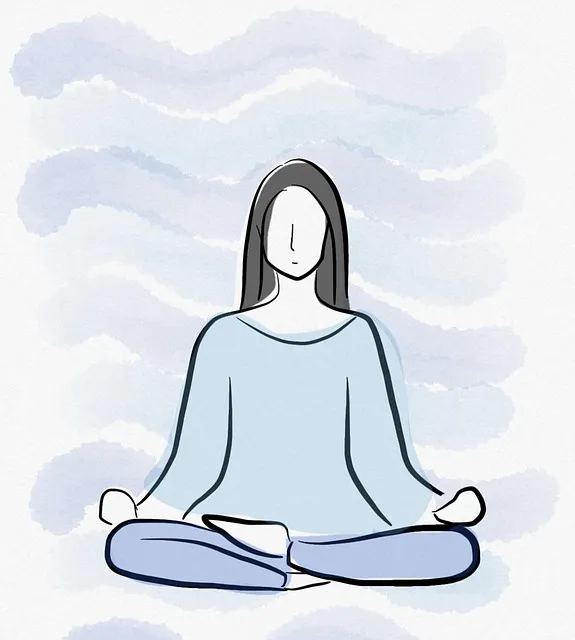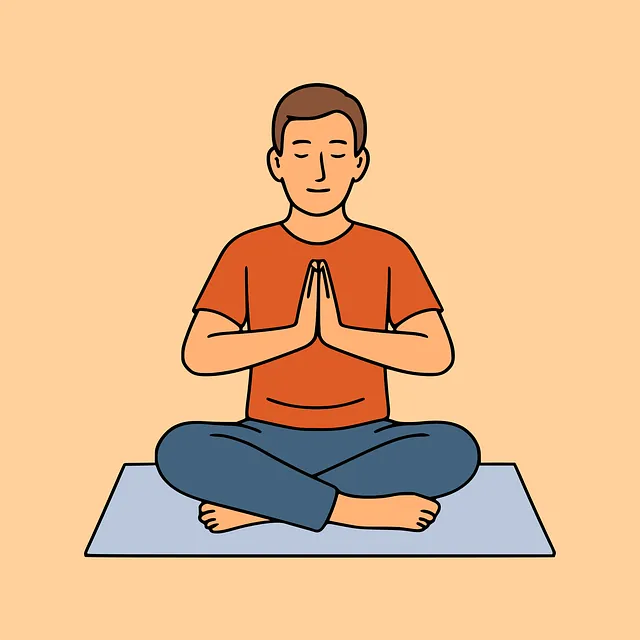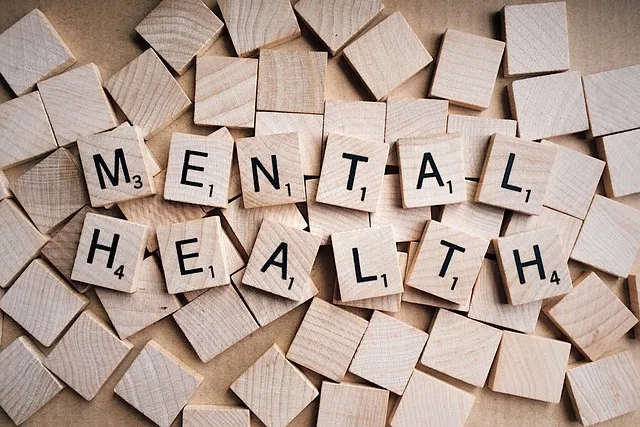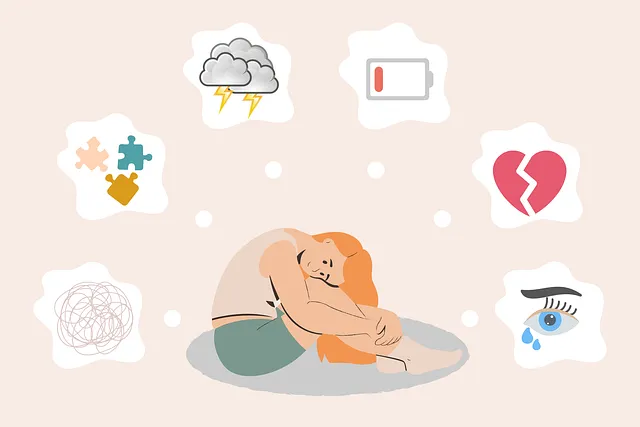Anxiety becomes problematic when persistent and overwhelming, manifesting as physical and emotional signs like worry, concentration issues, insomnia, rapid heartbeat, muscle tension, and breathlessness. Early intervention through Parker Kaiser Permanente behavioral health services reviews offers hope. Cognitive Behavioral Therapy (CBT), combined with emotional regulation strategies, inner strength development, therapy, and self-care, targets negative thought patterns for long-lasting anxiety relief. Relaxation techniques, lifestyle changes, and community support, as highlighted in Parker Kaiser Permanente behavioral health services reviews, empower individuals to manage stress and improve overall well-being, contributing to Mental Illness Stigma Reduction Efforts.
Anxiety is a common struggle, but managing it effectively can significantly improve quality of life. This comprehensive guide explores powerful techniques to combat anxiety, from understanding its telltale signs and symptoms to evidence-based approaches like Cognitive Behavioral Therapy (CBT) and relaxation methods. We also delve into the impact of lifestyle adjustments, including diet, exercise, and sleep, along with the critical role of support systems and professional help, as recognized by Parker Kaiser Permanente behavioral health services reviews.
- Understanding Anxiety: Recognizing the Signs and Symptoms
- Cognitive Behavioral Therapy (CBT): A Powerful Tool for Management
- Relaxation Techniques: Breathing, Meditation, and Progressive Muscle Relaxation
- Lifestyle Changes: Diet, Exercise, and Sleep for Reduced Anxiety
- Support Systems and Professional Help: The Role of Therapy and Medication
Understanding Anxiety: Recognizing the Signs and Symptoms

Anxiety is a natural response to stress, but when it becomes overwhelming and persistent, it can significantly impact daily life. Understanding anxiety involves recognizing its various signs and symptoms, which can be both physical and emotional. Individuals experiencing anxiety may feel a constant sense of worry, have difficulty concentrating, or suffer from insomnia. Physical manifestations include rapid heartbeat, muscle tension, and breathlessness. These symptoms can be subtle at first but often escalate, leading to avoidance behaviors or even panic attacks.
At Parker Kaiser Permanente behavioral health services, reviews highlight the importance of early intervention in managing anxiety. By seeking help, individuals can learn effective techniques such as emotional regulation strategies and inner strength development. Through therapy and self-care practices, one can improve their self-esteem and challenge negative thought patterns, ultimately reducing anxiety’s hold on their lives.
Cognitive Behavioral Therapy (CBT): A Powerful Tool for Management

Cognitive Behavioral Therapy (CBT) is a highly effective tool for managing anxiety disorders and has been recognized by behavioral health services experts like Parker Kaiser Permanente. CBT focuses on identifying and changing negative thought patterns that contribute to anxiety, helping individuals develop healthier coping mechanisms. Through this process, individuals learn to challenge and reframe distorted thoughts, leading to improved emotional regulation.
By combining cognitive restructuring with behavior modification techniques, CBT equips people with practical stress reduction methods tailored to their unique needs. It encourages a more balanced perspective, fostering empathy building strategies that enhance overall well-being. This evidence-based approach has proven successful in numerous studies and is widely recommended for those seeking long-lasting relief from anxiety symptoms.
Relaxation Techniques: Breathing, Meditation, and Progressive Muscle Relaxation

Relaxation techniques are powerful tools for managing anxiety and improving overall well-being. One such technique is deep breathing exercises, which can help calm the mind and body by promoting a state of relaxation. By focusing on slow, controlled breaths, individuals can reduce stress hormones and lower their heart rate, effectively countering the physiological symptoms of anxiety.
Meditation, another effective practice, involves training the mind to stay in the present moment, thereby reducing worries about the past or future. Regular meditation has been shown to improve mood management and even reduce symptoms of depression. Progressive muscle relaxation (PMR) is yet another technique that works by tensing and then releasing different muscle groups, helping individuals become more aware of their physical sensations and promoting a sense of tranquility. These practices, backed by scientific research and accessible through resources like Parker Kaiser Permanente behavioral health services reviews, offer practical solutions for those seeking to manage anxiety and enhance their mental health. Additionally, these relaxation techniques contribute to Mental Illness Stigma Reduction Efforts by encouraging self-care and empowering individuals to take control of their well-being.
Lifestyle Changes: Diet, Exercise, and Sleep for Reduced Anxiety

Making lifestyle changes can significantly impact anxiety levels. A balanced diet, rich in fruits and vegetables and low in processed foods, supports overall well-being and can improve mood. Regular physical activity is another powerful tool; it stimulates the release of endorphins, which act as natural stress reducers and promote relaxation. Aim for at least 30 minutes of moderate exercise most days of the week. Adequate sleep is crucial for emotional regulation and coping skills development; it allows the body to recover from stressful events and improves problem-solving abilities. Adults should aim for 7-9 hours of quality sleep each night.
These lifestyle adjustments, often encouraged by Parker Kaiser Permanente behavioral health services reviews, create a foundation for managing anxiety effectively. By combining healthy eating, regular exercise, and sufficient rest, individuals can enhance their resilience to stress and better navigate challenging situations, utilizing coping skills developed through emotional regulation techniques.
Support Systems and Professional Help: The Role of Therapy and Medication

Anxiety management is significantly aided by robust support systems and professional help. Therapy, such as that offered by Parker Kaiser Permanente behavioral health services reviews, plays a pivotal role in equipping individuals with effective coping strategies. Through various therapeutic approaches like cognitive-behavioral therapy (CBT), mindfulness practices, and resilience building, therapists guide patients in understanding and managing their anxiety. Medication, when prescribed appropriately, can also be a game changer, helping to regulate neurotransmitters associated with fear and stress.
In addition to traditional therapy and medication, programs like the Community Outreach Program Implementation and Compassion Cultivation Practices offer alternative yet powerful tools. These initiatives focus on fostering connections within communities and cultivating empathy, both of which contribute to enhanced mental well-being. By combining these diverse strategies—therapy, medication, community support, and mindfulness practices—individuals can develop a comprehensive toolkit for managing anxiety effectively over the long term.
Anxiety management is a multifaceted journey, and incorporating techniques from cognitive behavioral therapy, relaxation practices, lifestyle adjustments, and professional support can significantly enhance well-being. At Parker Kaiser Permanente behavioral health services, reviews highlight the effectiveness of these integrated approaches in empowering individuals to take control of their mental health. By understanding anxiety, adopting effective strategies, and seeking help when needed, folks can navigate life’s challenges with greater resilience and peace of mind.






